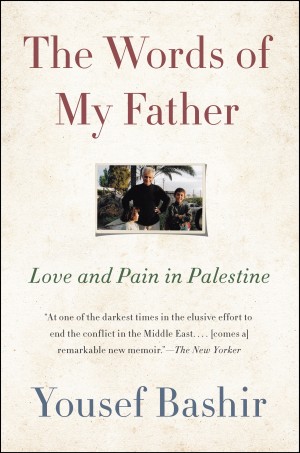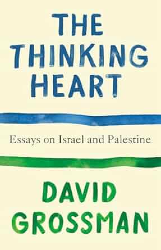In this deeply personal journey of discovery, Ami Ayalon seeks input and perspective from Palestinians and Israelis whose experiences differ from his own. As head of the Shin Bet security agency, he gained empathy for “the enemy” and learned that when Israel carries out anti-terrorist operations in a political context of hopelessness, the Palestinian public will support violence, because they have nothing to lose. Researching and writing Friendly Fire, he came to understand that his patriotic life had blinded him to the self-defeating nature of policies that have undermined Israel’s civil society while heaping humiliation upon its Palestinian neighbors. “If Israel becomes an Orwellian dystopia,” Ayalon writes, “it won’t be thanks to a handful of theologians dragging us into the dark past. The secular majority will lead us there motivated by fear and propelled by silence.” Ayalon is a realist, not an idealist, and many who consider themselves Zionists will regard as radical his conclusions about what Israel must do to achieve relative peace and security and to sustain itself as a Jewish homeland and a liberal democracy.

Friendly Fire: How Israel Became Its Own Worst Enemy and the Hope for Its Future
Discussion Questions
Courtesy of Steerforth Press
- In the Prologue, Ami Ayalon writes: “If Israel becomes an Orwellian dystopia, it won’t be thanks to a handful of theologians dragging us into the dark past. The secular majority will lead us there motivated by fear and propelled by silence.” Based on your reading of Ami’s book and your understanding of Israeli politics, do you agree with this assessment and why?
- In Ami narrates the history of Israel’s early years through the 1960s through his and his family’s experiences on the Kibbutz Ma’gan. How does his view differ from your picture of Israel in those years?
- What do you think Ami means when he writes about this “Fanta Man” moment on page 82?
- In the story, how do you think Ami’s experiences in the Flotilla 13 commandos contribute to his effectiveness at the Shin Bet? In what ways does he adopt a different strategy for fighting terrorism.
- The mission that Ami has throughout the story is keeping Israeli civilians safe during times of terrorism. What does he hold up under pressure? How does the mounting death toll in the mid-1990s affect his behavior? In a conversation with his successor, Avi Dichter, Ami criticizes the Shin Bet’s killing of Raed Karmi and says: “Your job isn’t to kill terrorists. It’s to prevent terror, which isn’t the same thing.” What is your reaction to this statement? What are some of the differences between “defense” and “security”?
- How does Ami’s relationship to his wife Biba and his children change over the course of the story?
- In Chapter 5 Ami writes that “kibbutzniks and settlers both believe Jews have a right to the Land of Israel.” How can you explain the changes Ami made in his approach to settlers and settlements from his childhood on the kibbutz to today.
- Why does Ami say on page 267 that the mother of Palestinian leader Sari Nusseibeh was smart “not to trust” Israelis and their declarations for wanting a two-state solution?
- Why do you think Ami ends his book on page 272 with a poem by the Israeli poet Yehuda Amichai? How does the poem sum up the lesson of the book?
- What does Ami mean when he writes about the need to design another “past story” for Zionism in order to ensure Israel’s identity as Jewish and democratic?
How did Ami Ayalon, a lifelong Zionist who was former head of Shin Bet and commander of Israel’s navy, transform from hawk to dove? Empathy. Ayalon realized that terror is inevitable when there is nothing to lose, that peace is possible only after trust is established, and that reframing the Palestinian debate requires compassion for a people who, like the Jews, have long been viewed dismissively as “the other.” For the past two decades, Ayalon has devoted himself to a two-state outcome. In 2002, with the Palestinian activist Sari Nusseibeh, he established the People’s Voice peace initiative in an effort to forge a new way forward to end the occupation. This important book examines the dominant narratives at work in Palestinian and Israeli views of the origins and course of their conflict. By “reimagining” the past, Ayalon posits a peaceful future.

Help support the Jewish Book Council.


